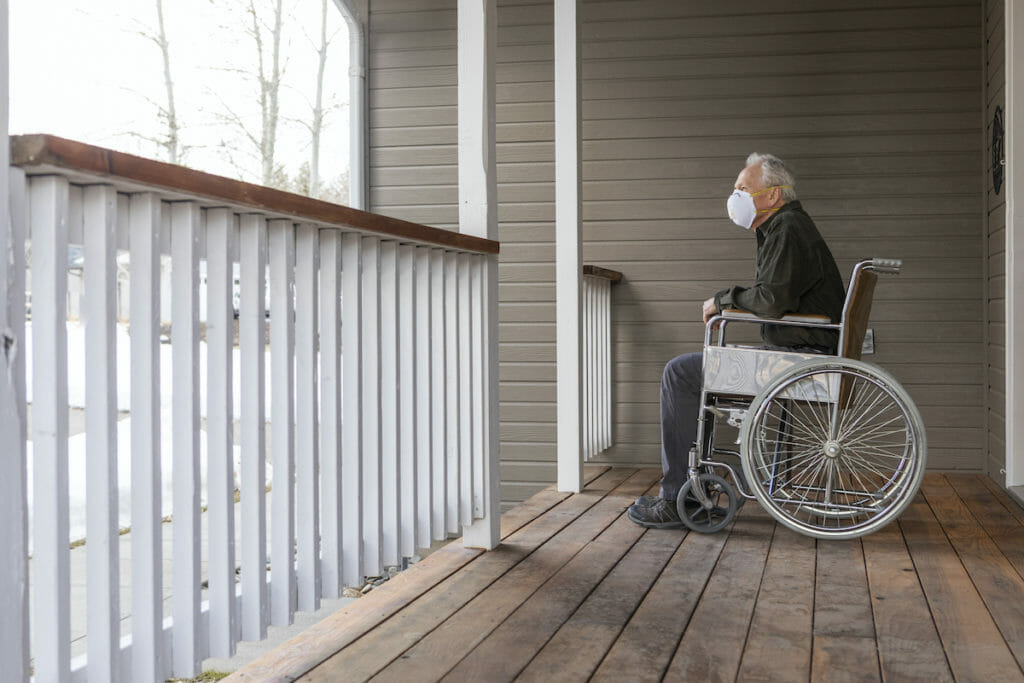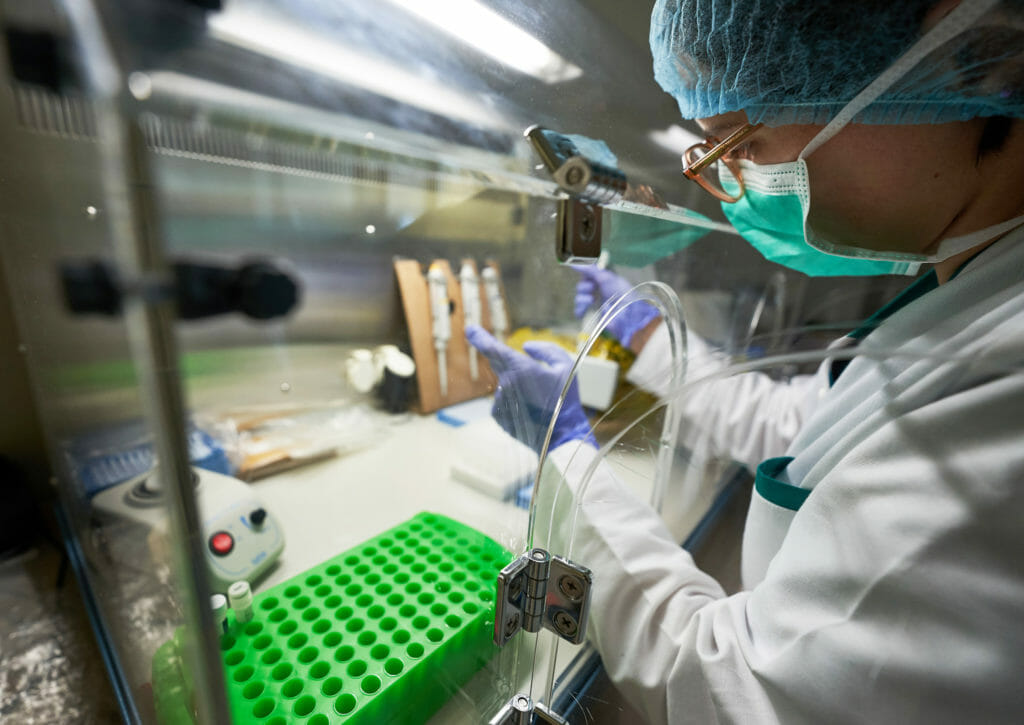As we counted our Thanksgiving blessings, other counts were proceeding—ever-increasing numbers of COVID-19 cases and deaths and ever-decreasing numbers of hospital beds available to absorb what Dr. Anthony Fauci calls a possible “surge upon a surge” in coming weeks. The number hospitalized in the United States soared to more than 100,000 on December 2, a record and a quantum leap over the 60,000 of spring and summer.
As we noted in yesterday’s Special Edition of the Haymarket Media Coronavirus Briefing, vaccines represent a “cavalry,” in Dr. Fauci’s words, that can help lift us out of our despair. The cavalry may be coming, but who’ll ride the horse?
This week’s Coronavirus Briefing is 1,488 words and will take you six minutes to read.
Reality check #1
Where are we, exactly, on this long, strange journey? Taking stock at the end of the year, wondering and worrying what comes next.
- The US Government Accountability Office is calling for “urgent action” to improve the federal response to the pandemic, saying that health agencies have provided little scientific explanation for changing key testing guidelines and that “more transparency around FDA’s scientific reviews of safety and effectiveness is needed to strengthen public confidence.”
- MM+M is asking marketers, communicators and anyone/everyone else to share who or what “pulled you through” the chaos and disruption of 2020. Alone we suffer; together we overcome.
- Infectious Disease Advisor’s Chen Fang interviews Dr. George Abraham, president-elect of the American College of Physicians, who considers this pandemic to be a wake-up call for the next one.
- Pandemic-caused delays in breast, colon, lung and other cancer screenings are resulting in missed opportunities to be diagnosed at early, more curable stages, Tara Haelle writes in Cancer Therapy Advisor. That could put an end to a 30-year downward trend in cancer mortality.
- Federal health agencies want to shorten the 14-day quarantine period for COVID-19, Alicia Lasek reports in McKnight’s Long-Term Care News. The new standard will be seven to 10 days.
- The shortened quarantine period will hinge in part on willingness to get tested. The first at-home test for SARS-CoV-2 analyzes nasal swabs and offers results in 30 minutes, Diana Ernst reports in MPR. The test is available only by prescription.
- The advent of vaccines will not change the need to abide by public health measures that are all too familiar but not uniformly followed. Delayed implementation or early easing of social-distancing policies, along with lower public adherence to those policies, tend to increase the number of COVID-19 cases, Zahra Masoud explains in Infectious Disease Advisor. Makes sense, yes?
- People with a sense of “psychological entitlement” are less likely to follow pandemic guidelines—and more likely to get infected with SARS-CoV-2, a recent study reports. Mary Stroka has more in Psychiatry Advisor.
The takeaway: The winter will test our resolve and our mettle. The darkest hour is just before dawn.

Reality check #2
The pandemic has forced us to rethink how we do just about everything—work, go to school, conduct business, provide healthcare, communicate. Not that there’s anything wrong with that.
- The pandemic has revealed “the fragility of nursing homes’ business model and our underinvestment in high-quality long-term care,” notes David Grabowski, a Harvard professor of health policy. Another long-term care expert puts it more bluntly: The pandemic has been a “pie in our face,” forcing the industry to take a hard look in the mirror. Liza Berger of McKnight’s Long-Term Care News and Lois A. Bowers of McKnight’s Senior Living offer details and insights.
- Meanwhile, 700 workers at 11 nursing homes in Illinois went on strike the Monday before Thanksgiving, seeking a $2-an-hour increase plus COVID hazard pay, Danielle Brown notes in McKnight’s Long-Term Care News.
- A bit of welcome news for the long-term care community: Staff and residents of LTC facilities are included in the recommended first priority group to receive COVID-19 vaccine, Kimberly Bonvisutto, Danielle Brown and Alicia Lasek report in McKnight’s Senior Living and McKnight’s Long-Term Care News. Also in the first priority group: all healthcare personnel, paid or unpaid, who work in settings where they have potential for direct or indirect exposure to patients or infectious materials.
- One in five employers in the UK are using or plan to use software to monitor employees working remotely, Jonathan Owen reports in People Management, “despite evidence that employees are now more engaged and loyal compared to the start of the pandemic.”
- Clear-eyed communication is key to guiding us through the ups and downs of pandemic life. MM+M ‘s Larry Dobrow unpacks how Prevention magazine has handled its coverage by “choosing to err on the side of cautious, sober-minded reporting” and countering “alarmist and often erroneous reports that flourished on social media.” It’s called responsible journalism, folks.
- Francesco Rocca, president of the International Red Cross and Red Crescent Societies, says that “to beat COVID-19, we also need to defeat the parallel pandemic of mistrust that has consistently hindered our collective response to this disease, and that could undermine our shared ability to vaccinate against it.”
The takeaway: Learn as we go. Make course corrections. Find our way. Pull us through.

Steps forward along the pathway
Vaccines might be in the vanguard but they only represent one flank of the much-anticipated COVID cavalry.
- An antibody cocktail from Regeneron for treating mild to moderate COVID-19 has received emergency use authorization. MPR’s Diana Ernst notes that the IV infusion mixing casirivimab and imdevimab should be given as soon as possible after a positive test and within 10 days of symptom onset.
- Baricitinib, an oral Janus kinase inhibitor approved for treating rheumatoid arthritis, may reduce inflammation and improve outcomes in severe cases of COVID-19, Amit Akirov reports in Rheumatology Advisor. The FDA last month approved emergency use of baricitinib in combination with remdesivir for hospitalized COVID-19 patients needing supplemental oxygen or mechanical ventilation.
- The FDA is also fast-tracking its review of a tissue factor inhibitor from ARCA biopharma, previously studied for treatment of thrombosis. This could help address the potentially lethal clotting problems that arise in COVID-19, Brian Park notes in MPR.
- An investigational cancer immunotherapy, CPI-006, may also be effective in treating COVID-19. Cancer Therapy Advisor’s Andrea S. Blevins Primeau notes that early results are promising and Phase 3 trials are planned.
- Without fanfare, good works abound. Third Sector’s Emily Burt describes how the nonprofit UK-Med has reached out a humanitarian hand across Africa and Asia to aid in pandemic relief. The organization also helped local healthcare workers cope with a spike in COVID-19 cases following the massive industrial explosion in Beirut.
The takeaway: Add to the list of frontline heroes the researchers who have pulled out all the stops to develop new drugs or repurpose existing ones to do battle against the virus. And let’s not forget the relief workers who quietly perform acts of kindness and love.
The rest
- Taiwan, with a population of more than 23 million, has had less than 700 cases of COVID-19 and just seven deaths. How did that happen?
- The Onion: “Nation Can’t Believe They Spent So Long Overlooking Obvious Solution Of mRNA Instructions For Spike Protein Encapsulated In Lipid Nanoparticle.”
- The CDC has published a suggested framework for a “phased resumption” of cruise ship activity. Seriously?
- One cruise line that never stopped operating is the U.S. Navy. An outbreak of COVID-19 on the aircraft carrier U.S.S. Theodore Roosevelt infected more than 25% of the crew of nearly 4,800. Nearly half of those testing positive never had symptoms; in all, 23 were hospitalized, four needed intensive care and one died. Transmission was sped by the large number of asymptomatic and presymptomatic sailors—and by close quarters.
- Autocar’s Andrew Frankel explains why “your first post-lockdown drive should be a track day.” As he notes, driving a performance car around a track “is one sport you can pursue while guarding very effectively against the risk of coronavirus transmission.”
- Bloomberg Businessweek explores why “America Just Can’t Get Enough Lysol.”
Stuff you can do
- Check out the weekly COVID-19 updates provided by the National Association for Continuing Education.
- Take your pick among 150 coronavirus memes to get you through self-isolation and social distancing.
- Get a flu shot. It’s not too late. In fact, National Influenza Vaccination Week is December 6-12.
- Wear a friggin’ mask! It’s not just Bruce Springsteen and Jon Bon Jovi who are on board with this; more than 120 hospital and health systems are as well.
…and some songs
Memories, Maroon 5; here’s to the ones that we lost on the way
Put On Your Mask, Gloria Estefan (to the tune of “Get On Your Feet”)
Do What You Can, Jon Bon Jovi and Jennifer Nettles (Pandemic Anthem)
Come Together, Rodney “Darkchild” Jerkins presents a heavenly host of gospel singers
Take care and be safe, good people. We’ll see you back here next Wednesday with another edition of the Haymarket Media Coronavirus Briefing.








